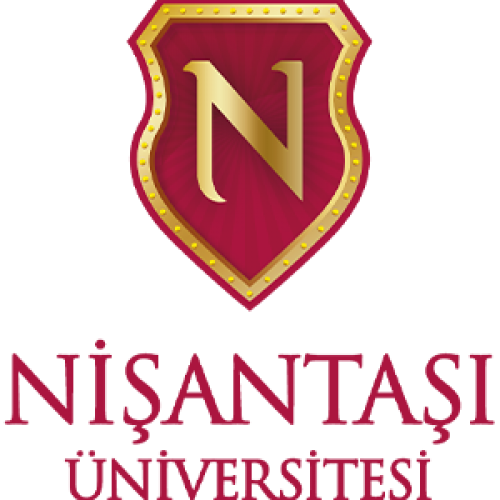

The specialty of human medicine in Turkey is one of the oldest and most important professional fields. The specialties within human medicine vary, including general surgery, neurology, orthopedics, plastic surgery, radiology, forensic medicine, cardiology, gynecology, pediatrics, and others.
A student studying human medicine takes a range of courses such as physiology, histology, organic chemistry, embryology, public health, the history and ethics of medicine, anatomy, an introduction to pharmacology, and other subjects.
The duration of studying human medicine in Turkey is six years, in addition to a preparatory year for learning the language of instruction, whether it is Turkish or English.
İstanbul
Coastal City
YesAirport
İstanbul Airport (IST)Train Travel
AvailablePopulation
15907951Students
1453543International Students
97865Istanbul Nisantasi University
Students
36721Academicians
-Professors
64International Students
5913World Rank
7392Turkey Rank
148No of Countries From
108Research Center
7Technopark
0Erasmus
AvailableErasmus Incoming
16Erasmus Outgoing
2Faculties
6Institutes
1No of Vocational Schools
2Bachelor Programs
-Masters Programs
65PhD Programı
5Features
ATM
Bank
Football Field
Security
Cafeteria
Canteen
Stationery
Conference Hall
Library
Car Park
Dormitory
Health Center
Fitness Center
Free Internet
In-Campus Transportation
Refectory
Walking Track
Swimming Pool
Barrier-free Campus
Istanbul Nisantasi University International/Foreign Student Admission Conditions and Required Documents for Application:
1- High School Diploma.
2- Transcript.
3- Passport.
4- Personal Photo.
5- TRYÖS, SAT, ACT etc Exam Result (if any).
6- Turkish Proficiency Certificate C1 (TÖMER) (if available).
7- Valid English Language Certificate (for English Language Programs / if available).
8- Equivalence Certificate (During registration / after the acceptance process).
Important Notes You Should Pay Attention to:
- The documents submitted during the application must be in Turkish or English language.
- For Application, you can prepare the documents in PDF format and apply via our website.
- The originals of the documents submitted in the application will be given to the university during registration.
- Registrations are made in person or with an official power of attorney issued by a notary on the dates specified in the acceptance letter.
- High School Diploma and Transcript (entire high school education) must be approved (Apostille) by the Ministry of Foreign Affairs of the relevant country. (Mandatory for equivalence transactions)
- The Turkish translation of the documents must be made by the Sworn Translator of the Embassy of the Republic of Turkey in your country or by the Notary Sworn Translators in Turkey. Otherwise, the translation is deemed invalid.
- Valid language certificates for English programs: TOEFL, YDS, YÖKDİL.
- Students who do not have a valid language document (Turkish or English) must take and pass the language profecincy exam organized by the university.
- Students who do not have a valid language certificate and fail the profecincy exam will receive 1 year of preparatory education.
For detailed information and application, you can contact the ABC Future team at the numbers on the our website.
Istanbul Nisantasi University International/Foreign Student Admission Conditions and Required Documents for Application:
1- Undergraduate Diploma or Graduation Certificate (for Master's Degree).
2- Undergraduate and Postgraduate Diploma or Graduation Certificate (for PhD).
3- Transcript.
4- Passport.
5- Personal Photo.
6- ALES, GRE, GMAT Exam Result (if any).
7- Turkish Proficiency Certificate C1 (TÖMER) (if available).
8- Valid English Language Certificate (for English Language Programs / if available).
9- Reference Letter (if any).
10- Motivation Letter (if any).
Important Notes You Should Pay Attention to:
- The documents submitted during the application must be in Turkish or English.
- For Application, you can prepare the documents in PDF format and apply via our website.
- The originals of the documents submitted in the application will be given to the university during registration.
- Registrations are made in person or with an official power of attorney issued by a notary on the dates specified in the acceptance letter.
- Diploma and Transcript must be certified (Apostille) by the Ministry of Foreign Affairs of the relevant country.
- Turkish translation of the documents must be made by the Sworn Translator of the Embassy of the Republic of Turkey in your country or by the Notary Sworn Translators in Turkey. Otherwise, the translation is deemed invalid.
- Valid language certificates for English programs: TOEFL, YDS, YÖKDİL.
- Students who do not have a valid language document (Turkish or English) must take and pass the language profecincy exam organized by the university.
- Students who do not have a valid language certificate and fail the profecincy exam will receive 1 year of preparatory education.
For detailed information and application, you can contact the ABC Future team at the numbers on the platform.







